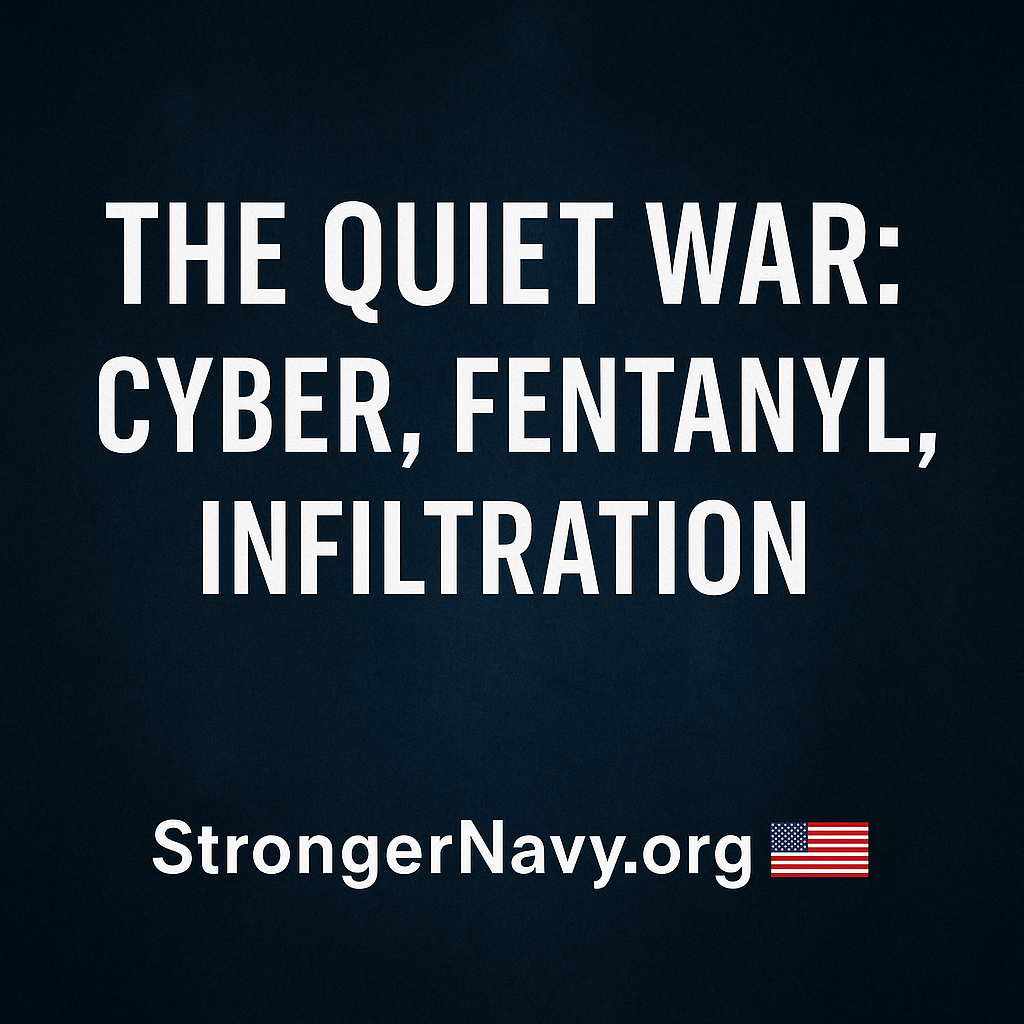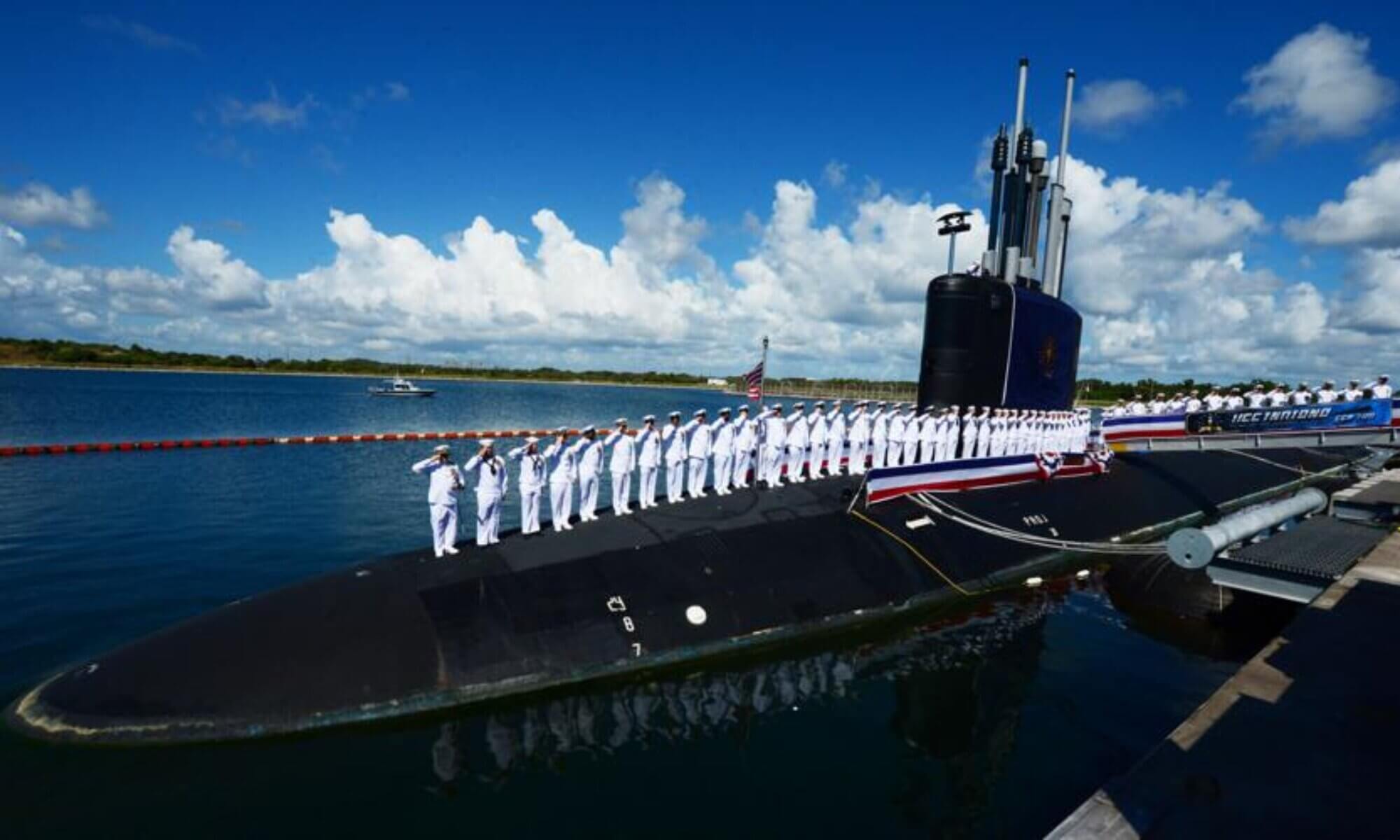

Introduction
As a former destroyer sailor from the ’70s, a Navy veteran who served on the Henry B. Wilson (DDG 7), and later a telecom and web technology executive, I don’t take words like “war” lightly. But we need to face facts: the Chinese Communist Party (CCP) has already launched a quiet war against America and our allies.
It doesn’t look like Pearl Harbor or Midway. Instead, it comes as millions of cyberattacks, poisoned streets, disinformation campaigns, and infiltrations into our critical infrastructure. The weapons are different, but the intent is the same: weaken America from the inside out until resistance collapses.
Two voices recently captured this reality:
- Retired Rear Admiral Mike Studeman, former Commander of the Office of Naval Intelligence, warned: “The reality is that adversaries have insinuated themselves in our homeland and continue to exploit our society from the inside out. This is the quiet and costly national crisis we have insufficiently mobilized to address.”
- Another security analyst summarized it bluntly: “Massive list of aggressive actions against the US by China, but two stand out: 1) cyber attacks on critical infrastructure, and 2) subsidizing fentanyl to addict our citizens. The CCP is an existential threat to our democracy and we must treat it as such.”
These aren’t exaggerations. They’re the facts on the ground — and in cyberspace.
Cyber Siege: The First Strike of Modern Conflict
The Hudson Institute’s August 2025 policy memo makes it plain: Taiwan now faces an average of 2.4 million cyberattacks per day. These intrusions target energy grids, logistics, medical systems, and semiconductors. Hudson’s conclusion is chilling: in a crisis, Beijing could disable Taiwan’s systems “without expending a single missile.”
This isn’t theory. It’s the same playbook Russia used against Ukraine in 2022, starting with cyberattacks to degrade command and control. The difference is that Taiwan is at the center of global supply chains, producing 90 percent of the world’s advanced semiconductors. If its networks go dark, the shockwaves would slam every corner of the global economy — including the U.S. Navy’s shipyards and weapons programs.
Fentanyl: War in Our Streets
While Taiwan faces digital siege, America faces chemical siege. CCP-linked networks subsidize the production of fentanyl precursors that end up killing tens of thousands of Americans each year. This is not just crime — it’s a form of warfare. An addicted, divided society is weaker, less resilient, and less able to project power abroad.
Just as cyberattacks aim to paralyze a nation’s systems, fentanyl undermines its people from within. Together, they form a strategy of attrition: weaken the United States until it can no longer lead.
Why Americans Should Care
- PRC-backed groups like Volt Typhoon have already penetrated U.S. critical infrastructure in places like San Diego, Norfolk, and Houston.
- Our communities are flooded with fentanyl that is subsidized and trafficked through networks linked to China.
- Our economic security hangs on supply chains that Beijing can disrupt with a few keystrokes.
The CCP doesn’t need to invade to weaken us. They’re already doing it.
Implications for the Navy
A Navy cannot fight if its logistics, communications, and supply lines are compromised. If Taiwan falls prey to a digital siege, our fleets in the Pacific will face an even harder fight — one fought without the semiconductor edge or the industrial resilience we’ve taken for granted.
The Navy will inevitably be tasked with cleaning up the mess: defending supply chains, securing sea lanes, and protecting American infrastructure from further exploitation. That means cyber resilience and industrial revival are as critical to naval readiness as shipbuilding or new destroyers.
Implications for Our Allies
Hudson warns of a dangerous ambiguity: there is no Indo-Pacific cyber alliance. Would Japan, South Korea, or Australia respond to a Chinese cyberattack on Taiwan? Would Washington retaliate in kind? The lack of clarity undermines deterrence — and gives Beijing confidence.
We need joint cyber defense drills, clear doctrine, and public-private coordination on resilience — not after a crisis, but now.
Conclusion
We are already at war — just not in the way most Americans imagine. The CCP’s cyberattacks, fentanyl subsidies, and influence operations are part of a long game of attrition. Admiral Studeman is right: this is a “quiet and costly national crisis” we’ve failed to mobilize against.
Hudson is right too: resilience is deterrence. America must strengthen its cyber defenses, rebuild its industrial base, and support Taiwan’s ability to withstand a digital siege. At the same time, we must recognize how Silicon Valley’s past choices — offshoring technology and handing Beijing the keys — helped create this vulnerability.
The sooner we admit the war has already begun, the sooner we can rally the Navy, our allies, and the American people to win it.


